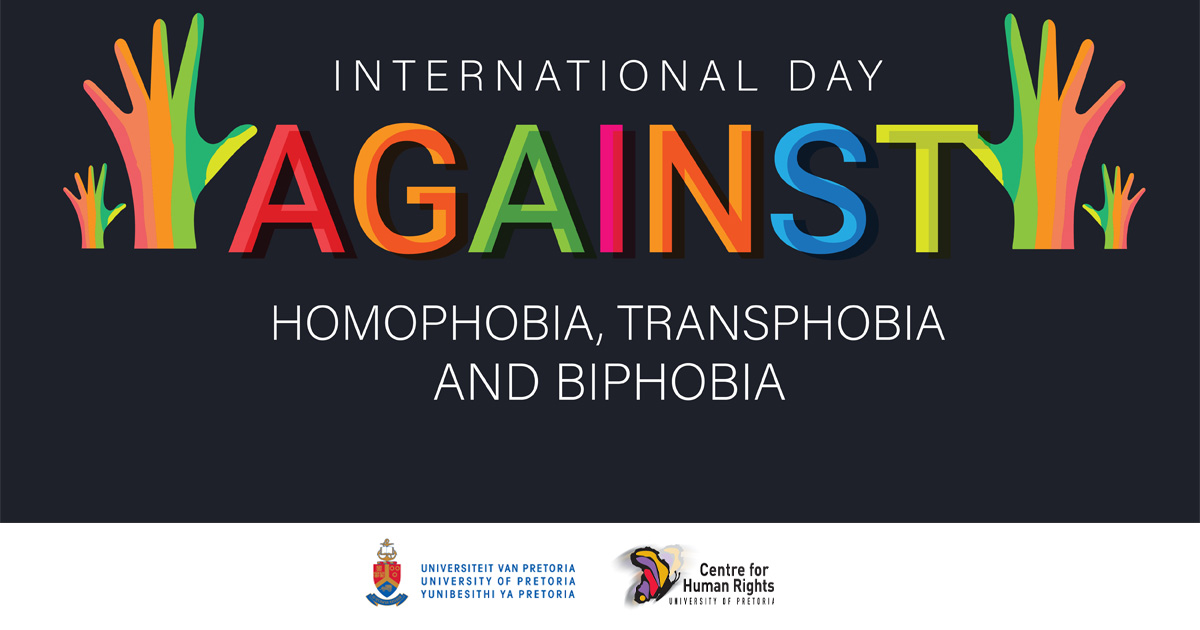On 17 May, 1990 the World Health Organization (WHO) removed homosexuality from its list of diseases. The decision was celebrated by the sexual as well as gender minority rights movement as it marked a milestone in the history of the quest for equality and non discrimination based on sexual orientation and gender identity. Henceforth, 17 May has been celebrated as the International Day Against Homophobia, Biphobia and Transphobia (IDAHOBIT).
This years IDAHOBIT coincides with 75 years of the World Health Organization (WHO) which proclaims in its article 1 that ‘all human beings are born free and equal in dignity and rights. They are endowed with reason and conscience and should act towards one another in a spirit of brotherhood equality’. Article 1 of the UDHR captures in many respects the essence of this year's theme for IDAHOBIT, which is ‘No one left behind: equality,freedom and justice for all’. It reminds us of the need to keep aspiring to the spirit and inspiration of article 1.
While 17 May marked a great step towards actualising the rights of sexual and gender minorities as inspired by the UDHR, instances of human rights violations based on sexual orientation and gender identity continue to occur across the world. These violations manifest in many forms and are a source of grave concern to the human rights aspirations of the UDHR and other international human rights instruments. In spite of these violations, we still celebrate 17 May not only to mark the decision of WHO but also to acknowledge the progress that has been made since then to ensure that no one is left behind. In Africa, for instance, some states have decriminalised their anti-sodomy laws; with the most recent being Mauritius. Court decisions decriminalising consensual same-sex sexual conduct and making declarations for protection of sexual and gender minorities are a reminder that not all is gloomy and can serve as inspiration for other states to to fulfill their human rights obligations. The examples and lessons learnt from states such as Botswana, Angola and Mauritius whose Courts most recently repealed their anti-sodmy laws are particularly important in the face of growing anti-rights movements, whose impact is more apparent in other countries on the continent such as Uganda and Ghana, who are enacting stiffer laws. In this regard, there is a need to highlight the examples and lessons we learn from countries that have been progressive. They show us that decriminalisation and tolerance towards sexual and gender minority rights does not erode a nation's values but rather highlights them. They also cast light on the fact that nation-building is best achieved by embracing our common humanity, by protecting vulnerable and marginalized groups and by taking the decision to incline a nation's legal system and values to those inspired in the UDHR- in essence to ‘leave no one behind’.
This years IDAHOBIT also takes places at the time of the session of the African Commission on Human and Peoples’ Rights (African Commission) and coincides with 10 years of the Commission's Resolution on Protection against Violence and other Human Rights Violations against Persons on the basis of Sexual Orientation and Gender Identity (Resolution 275). This merits a time to celebrate and reflect on what has been achieved through the Resolution. Resolution 275 in itself is symbolic of the progress that has been made to leave no one behind, since the decision of WHO on 17 May, 1990. It is also a stepping stone to what can be achieved going forward, bearing in mind the lessons learnt. It reminds us to hope and not despair. In this regard IDAHOBIT symbolises a day of reflection but, more so, a great day of celebration.
The Centre for Human Rights, Faculty of Law, University of Pretoria therefore joins the world in commemorating this day in line with its theme ‘No one left behind: equality, freedom and justice for all”.
For more information, please contact:

Tel: +27 (0) 12 420 3151
landilani.banda@up.ac.za

Tel: +27 (0) 12 420 3151
ch.vanderlinde@up.ac.za



